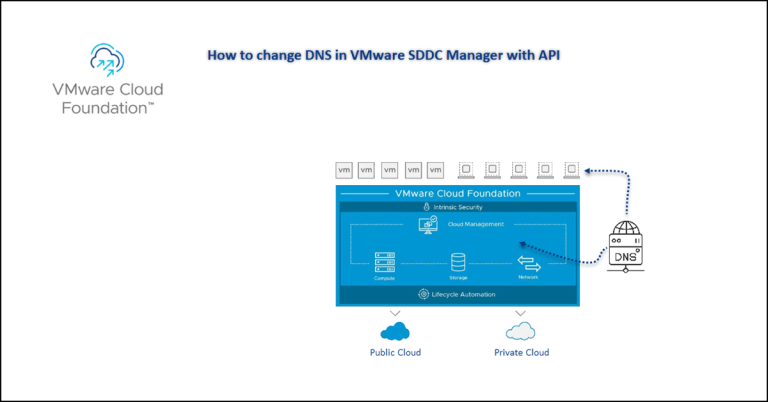Merhaba arkadaşlar bu yazımızda vSAN Encryption özeliliğini aktif etmekten bahsedeceğiz.
vSAN verileri şifreleme özelliği sağlar, bu özelliği kullanmak için bazı ön koşulları bulunmaktadır.
Host.Inventory.EditCluster
Cryptographer.ManageEncryptionPolicy
Cryptographer.ManageKMS
Cryptographer.ManageKeys
Şifrelemeyi etkinleştirmek için, cluster -> Configure tab -> vSAN -> Services -> Encryption

Önemli vSAN şifreleme teknolojileri;
1. KMIP: Key Management Interoperability Protocol
- A standard protocol that clients use to talk to KMS.
- The KMIP 1.1 protocol is required for use with vSAN Encryption
2. KMS: Key Management Server
- Key management is a core requirement for using vSAN Encryption and VM Encryption.
- A Key Management Solution using Key Management Interoperability Protocol (KMIP) version 1.1 is required.
3. KEK: Key Encryption Key
- The key-encryption key (KEK) is stored in KMS.
- Each vSAN cluster has one KEK.(per-tenant key)
- Key Encryption Keys are AES-256 compatible
4. DEK: Data Encryption key
- Data Encryption key (DEK) is the key used in the I/O path to encrypt/decrypt data.
- DEKs are XTS-AES-256 keys.
- Each disk in a vSAN disk group will have a unique DEK.
5. HEK: Host Encryption Key
- This is similar to the KEK but is used to encrypt vSAN host core dumps, not data.
- All hosts in a vSAN cluster use the same HostKey.
- Using a Host Key, customers can safely send encrypted core dumps to VMware Global Support without disclosing DEKs.
- The HEK assists in maintaining the integrity of customer data while assisting VMware Global Support with problem resolution.
- vSAN Host Keys are AES-256
6. Key cache
- A vSphere Host kernel module that caches the KEK from the KMS for use by vSAN Encryption and VM Encryption.


